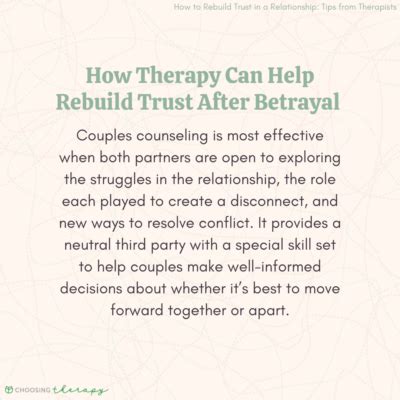Trust is the bedrock of any healthy relationship, and when it’s broken, the foundation can feel shattered. A relationship breach, whether due to infidelity, deceit, broken promises, or neglect, leaves deep wounds and challenges the very core of connection. Rebuilding trust is not a quick fix; it’s a deliberate, often painful, but ultimately rewarding journey that requires commitment from all parties involved.
Acknowledge the Breach and Express Remorse
For the person who caused the breach, the first and most crucial step is genuine acknowledgment and sincere apology. This means taking full responsibility without making excuses, blaming the other person, or minimizing the impact of their actions. The apology must be heartfelt, demonstrating a deep understanding of the pain and damage caused.
For the person who was hurt, it’s about being heard and having their pain validated. This initial validation is essential for beginning the healing process, as it confirms that their feelings are recognized and taken seriously.

Foster Open and Honest Communication
Rebuilding trust necessitates establishing a new, profound level of transparency. Both partners need to commit to honest and open dialogue, even when these conversations are uncomfortable or painful. The injured party needs the space and safety to ask questions, express their feelings, and voice their fears without fear of judgment or retaliation.
The offending party must be prepared to answer these questions truthfully, listen empathetically, and provide reassurance. Establishing clear boundaries around communication ensures that discussions remain respectful and constructive, even amidst raw emotions.

Demonstrate Consistent Accountability and Change
While words are important, actions truly speak louder in the process of rebuilding trust. The person who breached trust must consistently demonstrate a commitment to change through their behavior. This involves following through on promises, being transparent about their activities, and actively working to avoid repeating the harmful behavior.
It’s about rebuilding credibility through consistent, trustworthy actions over time. This requires immense patience from both sides, as trust is earned incrementally, and a single misstep can set the process back considerably.

Cultivate Patience and Practice Forgiveness
Healing takes time, and there is no set timeline for how long it will take to rebuild trust. The person who was hurt needs time to process their emotions, grieve the loss of trust, and gradually open themselves up again. The person seeking to rebuild trust must be patient, understanding that trust is earned incrementally and that setbacks may occur.
Forgiveness, while crucial, is a deeply personal choice and a process, not a singular event. It doesn’t mean forgetting or condoning the action, but rather releasing the grip of anger, resentment, and the desire for retribution to allow both individuals to move forward.

Rebuild Intimacy and a Shared Future
As trust slowly mends and communication improves, it’s crucial to intentionally rebuild emotional and, if applicable, physical intimacy. Spend quality time together, engage in activities that strengthen your bond, and create new positive memories that can help overwrite the painful ones.
Discuss your shared future, re-establishing a vision for the relationship based on mutual respect, renewed commitment, and shared goals. This stage signifies moving beyond the immediate aftermath of the breach and actively constructing a stronger, more resilient connection for the future.

Rebuilding trust after a breach is one of the most challenging tasks in a relationship. It demands courage, vulnerability, immense patience, and unwavering dedication from both individuals. While the journey is arduous and fraught with difficulties, successfully navigating it can lead to a deeper, more resilient, and ultimately more fulfilling connection built on a stronger foundation of understanding and renewed commitment.




